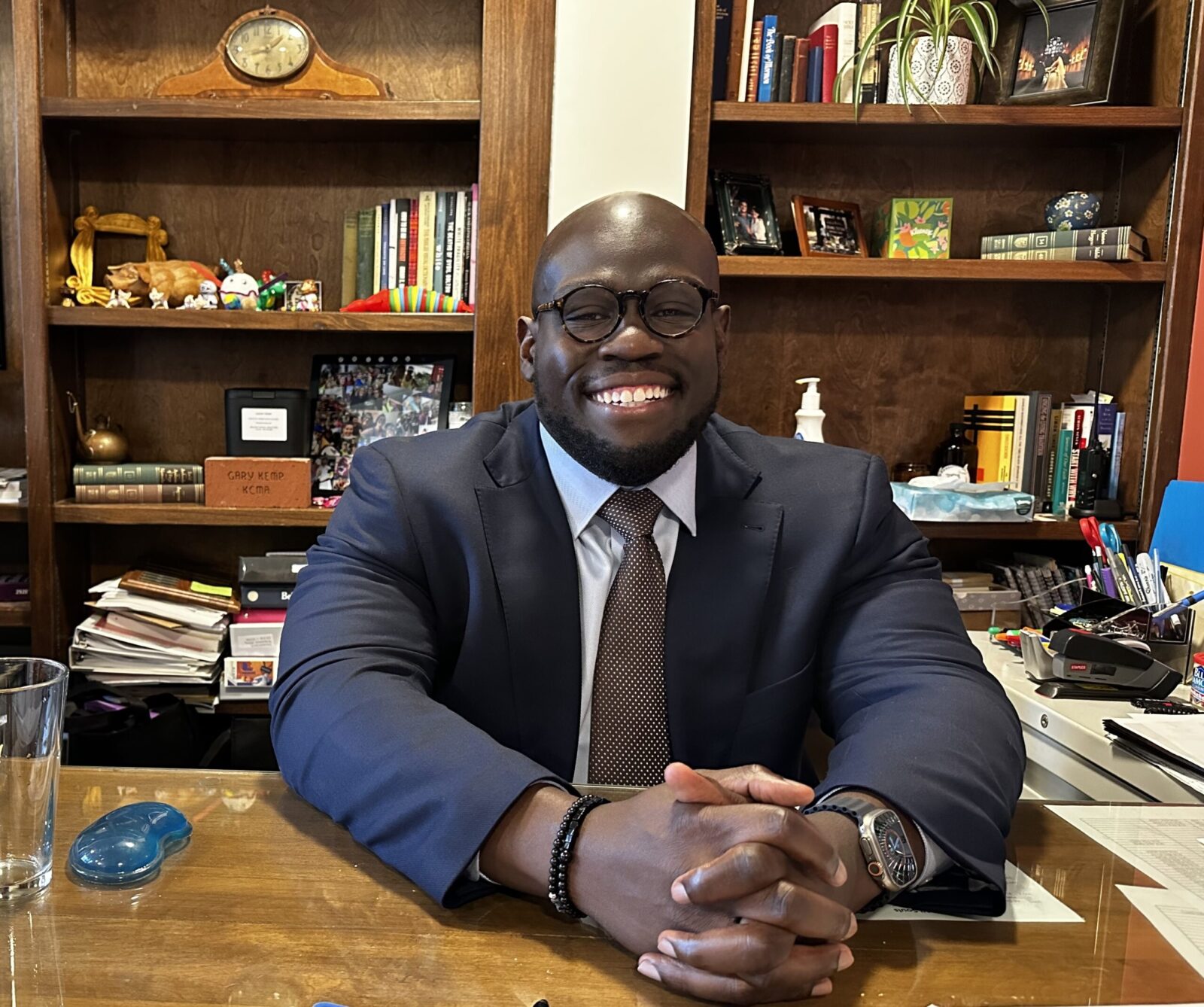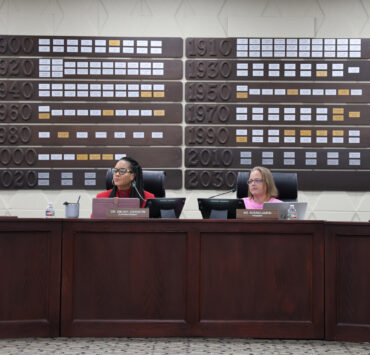
LOCAL
Ross Terrell, The Oklahoma Eagle
Caleb Gayle’s new book Black Moses explores the life of Edward McCabe. Photo: Ross Terrell/The Oklahoma Eagle
When Caleb Gayle began telling the story of political pioneer Edward McCabe in his new book “Black Moses,” he wanted it to feel cinematic. So he embraced the qualities of Western movies.
Except, Gayle says, the people he writes about “don’t look like characters portrayed on screen” because “their skin hues of a darker tone.”
His draw to McCabe was simple. Here was a politician who, in the late 1800s, pursued the creation of a Black state on the land that would later become Oklahoma. But McCabe, as Gayle puts it, was far from perfect. Obviously, a Black state never came to fruition but Gayle remains inspired by McCabe’s effort.
“I wanted to tell a very real story about him and the people that he led,” Gayle said, “because to some extent, I think that their attempts at trying … even when trying seemed futile, to some extent, was their own salvation. To capture Black people and fundamentally Americans, trying to make an America that would include them, that just feels like the most iconic of American stories.”
Gayle, a Tulsa native and journalism professor whose previous work includes “We Refuse to Forget: A True Story of Black Creeks, American Identity, and Power,” visited All Souls Unitarian Church Tuesday to promote his latest book. The Oklahoma Eagle caught up with him to talk about his relationship to the city and what he hopes readers take away from “Black Moses.”
The following conversation has been edited for clarity and length.
Ross Terrell: Why did you pick Tulsa as one of the early stops on your tour and not a bigger city like Oklahoma City or Dallas?
Caleb Gayle: One, Tulsa is home and it always will be. But part of it is that I feel as if McCabe’s legacy, in part, is not just the Greenwood District. I think his legacy, in part, is the way in which even Tulsa represents, kind of perfectly and imperfectly, the collision of a lot of different types of people’s dreams then and now.
Tulsa is being remade as we speak. Really what you end up seeing in the book is that Oklahoma, as well as the American West, was a bit of a playground for the United States government to figure out at very critical junctures when our country was asking itself who it will become, the West and Oklahoma in particular, became the places where they would test out that theory.”
RT: The name of the book takes its cue from Moses who is a religious figure and in it you quote scripture. What impact did religion have on you growing up?
CG: I’m a preacher’s kid many times over and some of my favorite writers of all time have used religious motifs as a way of organizing their thinking. When we look at any sort of biblical character, it’s impossible the way in which the Bible is knitted together to examine any one character, any one person as one isolated person. I don’t see McCabe in isolation. That’s boring to me. So if he was called Moses, which he was on several occasions, then like, who are the people that he led? Moses was not an interesting figure because he said, “let my people go.” He’s an interesting person because he had people who he could say are “my people.”
RT: Your conversation in Tulsa was guided by Mayor Monroe Nichols, the first Black mayor of Tulsa, who is a historical figure in his own right. Why did you choose him for this event?
CG: I probably would have picked him even if he hadn’t won, because he tried. I think, likewise with McCabe, he tried. That’s the legacy. The legacy isn’t winning. I’m very proud of Nichols for winning. I’m elated that Tulsa has done what took them far too long, which is elect someone who didn’t look like the majority of the people here.
But I would have given him plaudits, I would have given him his flowers, had he just tried. That’s what needs to be valorized. Because oftentimes, when we valorize only the winners, we then relegate people who might have the aspiration to try. We remand them to the margins simply because they might not have the highest likelihood of winning.
RT: Why should people read “Black Moses” and what do you hope they’re going to leave with?
CG: I was in Rockport, Maine, in this packed house in what I think is one of the whitest towns in one of the whitest counties in America. But they seemed wrapped simply because they were there for a rollicking Western — an interesting and entertaining journey of this dude who wanted too much, in the eyes of a lot of people.
This book doesn’t dwell on Oklahoma. It takes you from Washington, D.C., to Virginia, Haiti, Liberia, Chicago, New York, Boston, Newport and more before you get to Oklahoma. So the journey of trying to belong is circuitous by design and, to some extent, it lends itself to a reader who might want a pure history, a reader who might want to understand a part of the country they’ve never been to, a reader that wants to go on a whirlwind journey or a reader who just wants to be wildly entertained.









